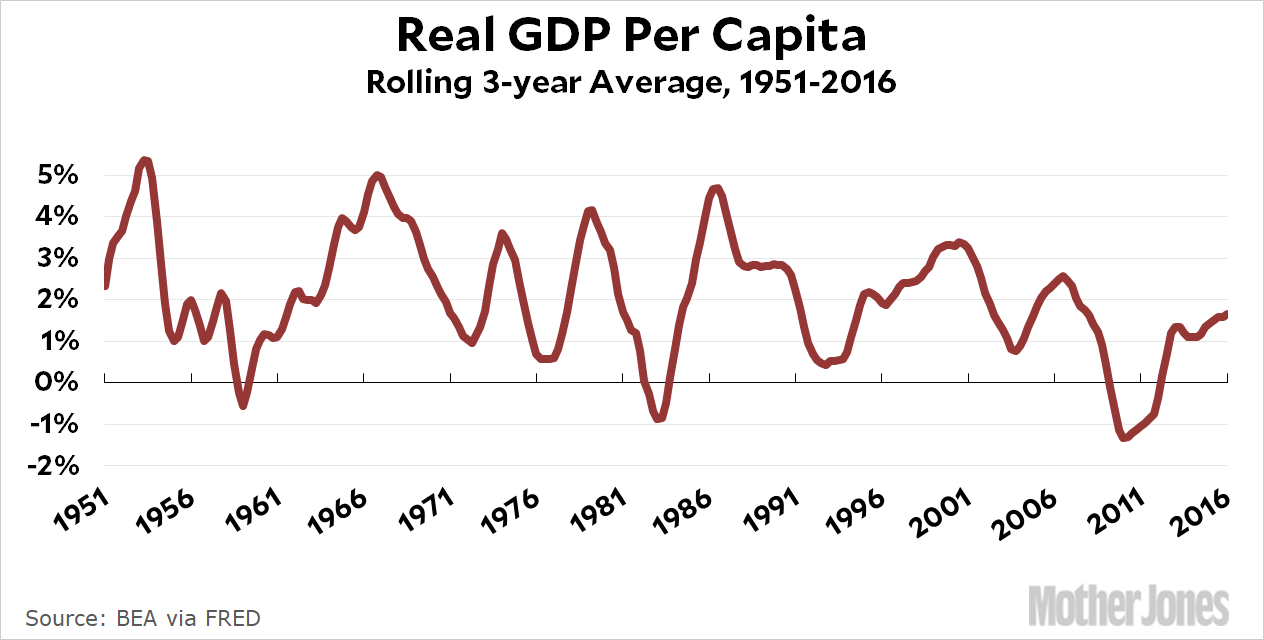My plan, which I will probably jettison quickly if history is any guide, is to take a breather from the Manafort news for a little bit. Let it sink in, let other people dig into it, and then write more about it when it’s a little clearer what’s really going on. We’ll see if I can follow through on this resolution.
As a starter, how about a post about economic booms and busts? I noted the other day that, in practice, the “Great Moderation” seems to have moderated booms but not busts:

Around 1980, economic peaks dropped from growth rates of around 4 percent to around 2 percent, but downturns stayed about the same at 1 percent. I suggested this might be due to the Fed’s anti-inflation bias, but Alex Tabarrok points to a recent paper out of Denmark that instead puts economic deregulation at the forefront:
It’s more than lower economic growth—expansions also last longer. It’s as if the booms have been smoothed over a longer period of time but not the busts.
….The authors argue that financial innovation made credit more easily accessible and easier credit led to more leverage. Leverage, however, has an asymmetric feature. When asset prices are up everything is golden, wealth is high and credit is easy because lenders are happy to lend to the rich. When asset prices decline, however, the economy takes a double hit, wealth is low and credit is tight. The net result is that booms are smoothed but busts become, if anything, even more violent.
The theory is promising because it explains both the negative skewness and the great moderation. It’s also important because higher leverage, longer expansions and greater negative skew are new features of business cycles that appear across many developed economies as shown by Jorda, Schularick and Taylor in Macrofinancial History and the New Business Cycle Facts. In this paper Jorda et al. create new data series using over 150 years of data from 17 economies and conclude [that] “leverage is associated with dampened business cycle volatility, but more spectacular crashes.”
Longtime readers know that leverage is probably my single biggest hot button when it comes to economic cycles. If I were Cato, my motto would be “Leverage delenda est.” So I am totally primed to believe this. The big question, of course, is whether it’s worth it. Do the longer upturns make up for the sharper downturns? I doubt it. Generally speaking, I would happily give up thousands of pages of financial regulations in return for a single-minded focus on restricting leverage in every part of the financial system. That includes bankers, hedge funds, home buyers, and everyone else. The road to hell is paved with leverage greater than 10:1.

















